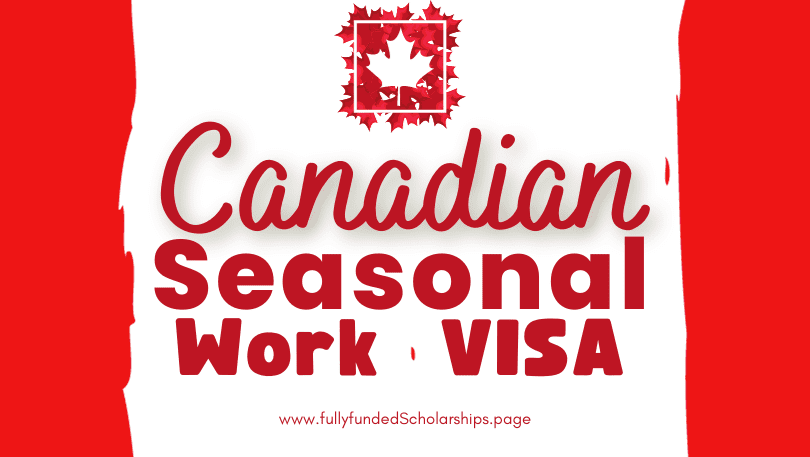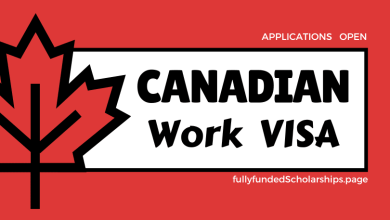
Canada is among those countries where you can find seasonal work opportunities and get fast track seasonal work visa even without the need of IELTS exam. Canada is offering seasonal or temporary work visas through programs like the Seasonal Agricultural Worker Program (SAWP) and the Temporary Foreign Worker Program (TFWP), allowing international skilled workers to fill short-term labor needs in various industries of Canada during specific seasons.
But before you get familiar with both these Canadian seasonal work visa types i would like you to get familiar with terms such as IRCC, LMIA, CRS, SWAP, and TFWP; so that then you will be able to understand this article and application process of Canadian seasonal work visa easily:
- IRCC (Immigration, Refugees and Citizenship Canada):
- IRCC is the Canadian federal department responsible for immigration, citizenship, and refugee matters. If you’re applying for a visa, work permit, or any other immigration-related document, you’ll likely be interacting with IRCC.
- LMIA (Labour Market Impact Assessment):
- Before hiring a foreign worker for certain job categories, Canadian employers often need to get a positive LMIA from Employment and Social Development Canada (ESDC). This assessment shows that there is a need for a foreign worker to fill the job and that no Canadian worker is available to do it. A positive LMIA is sometimes called a confirmation letter. If you’re applying for a work visa under the Temporary Foreign Worker Program (TFWP, more on this below), you will typically need an LMIA.
- CRS (Comprehensive Ranking System):
- The CRS is a points-based system that the Canadian government uses to assess and rank candidates in the Express Entry pool based on factors such as age, education, skilled work experience, and language proficiency in English and/or French. This is more relevant to those looking for permanent residency through the Express Entry system than to seasonal workers.
- SAWP (Seasonal Agricultural Worker Program):
- SAWP allows agricultural employers to hire temporary foreign workers (TFW) when Canadians and permanent residents are not available. These foreign workers can come from certain participating countries. If you’re seeking a seasonal work visa related to agricultural work, this program might be the one you’d go through. Note that an LMIA is required for the SAWP.
- TFWP (Temporary Foreign Worker Program):
- The TFWP allows Canadian employers to hire foreign nationals to fill temporary labour and skill shortages when qualified Canadian citizens or permanent residents are not available. The program has several streams, including the aforementioned SAWP. If you’re looking to work in Canada on a temporary basis, you might apply for a permit under the TFWP. As mentioned, many streams under TFWP require an LMIA.
3 Steps to Apply for Canada’s Seasonal Work VISA: SAWP or TFWP
You can follow these three simple steps if you are interested to submit your seasonal work visa application for Canada in 2024:
- Find an Employer: The first step would be to find an employer willing to offer you a job. This is often the most challenging part.
- Get Positive LMIA (if required): If the job offer is under a category that requires an LMIA, the employer would need to apply for and receive a positive LMIA.
- Apply for a Work Permit: Once you have a job offer (and LMIA if required), you can apply for a work permit through IRCC and depending on the nature of the work (e.g., seasonal agricultural), you might be applying under the SAWP stream or TFWP work visa program.
Types of Seasonal Work VISA for Canada:
There are two types of Canadian seasonal work visa programs available:
- Seasonal Agricultural Worker Program (SAWP) and,
- Temporary Foreign Worker Program (TFWP)
Both of these Canada’s category D skill work visa programs are announced by IRCC Canada that allow agricultural and other seasonal workers to work in Canada for a limited duration. The Seasonal Agricultural Worker Program (SAWP) and Temporary Foreign Worker Program (TFWP) are those two Canadian IRCC work visa programs that address labor shortages in various sectors of Canada.
Type A: Seasonal Agricultural Worker Program (SAWP):
If you belong to any of these listed countries then i have got a superb news for you because you will stand eligible for seasonal agricultural work visa program for Canada whenever IRCC has requirement for farm workers: Anguilla, Antigua, Barbuda, Barbados, Dominica, Grenada, Jamaica, Mexico, Montserrat, Kitts Nevis, Lucia, Vincent and Grenadines, Trinidad and Tobago.
-
- Purpose: Canada’s SAWP aims to fill temporary seasonal labor gaps in the agricultural sector and this work visa program was established in collaboration with specific countries which i mentioned above. SAWP allows Canadian agricultural companies to hire foreign farming workers during peak seasons when local agricultural labor falls short.
- Eligibility: Canadian agricultural employers must prove that efforts to hire Canadians or permanent residents were unsuccessful or there was no enough labor available locally and this is why they opt to hire international agricultural labor. Whereas international farming/agriculture workers need to have enough agricultural work experience and skill in order to get your Canadian seasonal work visa type SAWP easily.
- Application: Employers first need a positive Labour Market Impact Assessment (LMIA) from Employment and Social Development Canada (ESDC) after demonstrating attempts to hire locally and i have written complete application submission guide article about SAWP which you can read as well.
Type B: Temporary Foreign Worker Program (TFWP):
-
- Purpose: Canada’s TFWP addresses broader labor shortages across different Canadian industries, not limited to agriculture because this work visa program offers Canadian employers the option to hire foreign workers for temporary job positions when Canadian citizens or permanent residents aren’t available.
- Eligibility: Similar to the SAWP, employers must obtain a positive LMIA. Workers, however, can be from any Canadian friendly country and are typically required to have certain qualifications or experience relevant to the job.
- Application: Again, the first step for employers is to obtain a positive LMIA from the ESDC. Subsequently, foreign workers apply for a work permit using this LMIA and must also meet other criteria set by Immigration, Refugees and Citizenship Canada (IRCC).
Fees: As of January 2023, the LMIA application processing fee for both seasonal work visa immigration programs was CAD $1,000 per application. However, fees may vary over time and by specific job categories, so it’s crucial to refer to the official ESDC or IRCC websites for updated information. In essence, while both these Canadian seasonal work visa programs aim to address labor shortages, the SAWP is specific to seasonal agricultural needs, whereas the TFWP has a broader scope encompassing various industries.
Is IELTS Required to apply for Seasonal Work VISA for Canada?
IELTS is not needed if your skill/qualification comes under skill category D in order to apply for your Canadian work visa and i am glad to inform you that SAWP (farm worker jobs) comes under skill category D for which IELTS or any other language proficiency test is not needed.
For Canada’s Seasonal Agricultural Worker Program (SAWP), IELTS or other formal language tests aren’t typically mandatory, as the focus is on the worker’s ability in agriculture, not language. However, basic English or French knowledge is beneficial for safety and communication.
On the other hand, if you are applying for Canadian Temporary Foreign Worker Program (TFWP) then IELTS is basically is not a mandatory requirement because the need for language proficiency depends on the specific job type. While many lower-skilled jobs don’t need IELTS whereas if you are opting for a high skilled job with high qualification requirement or the kind of job in Canada that require public interaction then you will be required to clear English/French language proficiency test.
Employers can also have their own language proficiency preferences, and for some jobs, language proficiency is essential for safety. If you are considering to apply for Canadian permanent residency then all Canadian immigration programs do require IELTS or French language tests.

![Canada Visitor VISA Application Process, Eligibility, Fees [2024]](/wp-content/uploads/2023/01/Canada-Visitor-VISA-Application-Process-Eligibility-Fees-2024-220x150.png)






I’m 38 years old Physically fit guy and my Qualification is M.Phil in Chemistry. My basic profession is teaching but I have lot of experience in agriculture field as well. Can i move to Canada?
Canadian seasonal agri work visas are available to applicants of selected countries mentioned in my article. In case your country is not in list then please apply for TFWP seasonal work visa for Canada.